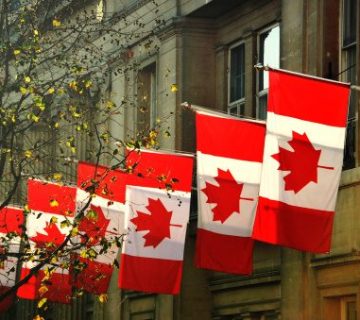International Student Program Changes in Canada
تغييرات برنامج الطلاب الدوليين في كندا
Frequently asked questions about the IRCC Study Permit Declaration
On January 22, Immigration Refugees and Citizenship Canada (IRCC) made significant changes to Canada’s International Student Program. These changes include imposing a new cap on study permits for 2024 and implementing a new policy for regional letters of attestation. In this article, we’ll cover some frequently asked questions about these changes and try to clarify the details that IRCC has revealed so far.
When will the changes take effect?
The new cap on study permits and the start of the certification letter process were implemented on January 22, meaning that only 360,000 study permit applications will be approved for the remainder of the year. However, the process of letters of ratification for provincial and territorial governments has not yet ended, as they have been given until March 31 to implement the process.
Will the changes affect my acceptance letter and my plans for arriving in Canada?
Yes, the new changes include anyone who has not submitted a study permit application before 22 January 2024. So even if you have received an acceptance letter to study at a particular educational institution, you will be subject to these new policies if you do not submit your study permit application before that date.
Do I have to wait until March 31 to apply for a study permit?
At the moment, it remains unclear whether international students will have to wait until the end of March to submit their applications for their study permit. The responsibility now falls to the provinces and territories to develop a process for issuing letters of authentication. If they are successful in this before March 31, international students may be able to submit their applications sooner.
Are there exceptions for orders submitted after January 22?
Yes, according to IRCC, some study permit applications will not include these new changes. These exceptions include minor children who wish to attend primary or secondary school, students who wish to attend postgraduate programs, as well as students who wish to renew their study permits.
Will I need IRCC approval to change my institution in 2024?
It is unclear what the process will be like for international students who want to change institutions next year. IRCC can provide more clarity on this matter in the future.
Are these changes permanent?
According to the January 22 release, the international student cap and letter of attestation process are temporary measures, planned to take effect over the next two years. IRCC has confirmed that it will re-evaluate the cut-off for international students for 2025 at the end of this year.
الأسئلة الشائعة حول إعلان تصريح الدراسة الخاص بـ الهجرة واللاجئين والمواطنة الكندية
في 22 يناير، أدخلت إدارة الهجرة والمواطنة الكندية (الهجرة واللاجئين والمواطنة الكندية) تغييرات هامة على برنامج الطلاب الدوليين في كندا. هذه التغييرات تشمل فرض حد أقصى جديد لتصاريح الدراسة لعام 2024 وتنفيذ سياسة جديدة لخطابات التصديق الإقليمية. في هذا المقال، سنغطي بعض الأسئلة الشائعة حول هذه التغييرات وسنحاول توضيح التفاصيل التي كشفت عنها الهجرة واللاجئين والمواطنة الكندية حتى الآن.
متى ستدخل التغييرات حيز التنفيذ؟
تم تنفيذ الحد الأقصى الجديد لتصاريح الدراسة وبدء عملية خطاب التصديق في 22 يناير، مما يعني أنه خلال الفترة المتبقية من العام، سيتم الموافقة على 360 ألف طلب للحصول على تصريح دراسة فقط. ومع ذلك، لم تنتهي عملية خطابات التصديق لحكومات المقاطعات والأقاليم بعد، حيث تم منحها مهلة حتى 31 مارس لتنفيذ هذه العملية.
هل ستؤثر التغييرات على خطاب القبول الذي لدي وخطط وصولي إلى كندا؟
نعم، التغييرات الجديدة تشمل أي شخص لم يقدم طلب تصريح الدراسة قبل 22 يناير 2024. لذا حتى لو كنت قد حصلت على خطاب قبول للدراسة في مؤسسة تعليمية معينة، ستخضع لهذه السياسات الجديدة إذا لم تقدم طلبك للحصول على تصريح الدراسة قبل ذلك التاريخ.
هل يجب علي الانتظار حتى 31 مارس لتقديم طلب تصريح الدراسة؟
في الوقت الحالي، لا يزال غير واضح ما إذا كان على الطلاب الدوليين الانتظار حتى نهاية مارس لتقديم طلباتهم لتصريح الدراسة الخاص بهم. المسؤولية الآن تقع على عاتق المقاطعات والأقاليم لتطوير عملية إصدار خطابات التصديق، وإذا نجحوا في ذلك قبل 31 مارس، فقد يكون الطلاب الدوليون قادرين على التقديم بطلباتهم في وقت أقرب.
هل هناك استثناءات للطلبات المقدمة بعد 22 يناير؟
نعم، وفقًا للهجرة واللاجئين والمواطنة الكندية، لن تشمل بعض طلبات تصريح الدراسة هذه التغييرات الجديدة. تشمل هذه الاستثناءات الأطفال القُصّر الذين يرغبون في الالتحاق بالمدارس الابتدائية أو الثانوية، والطلاب الذين يرغبون في حضور برامج دراسات عليا، بالإضافة إلى الطلاب الذين يرغبون في تجديد تصاريح دراستهم.
هل سأحتاج إلى موافقة الهجرة واللاجئين والمواطنة الكندية لتغيير مؤسستي التعليمية في عام 2024؟
لم يتضح بعد كيف ستكون العملية بالنسبة للطلاب الدوليين الذين يرغبون في تغيير مؤسساتهم التعليمية في العام المقبل. يمكن أن توفر الهجرة واللاجئين والمواطنة الكندية مزيدًا من الوضوح حول هذا الأمر في المستقبل.
هل هذه التغييرات دائمة؟
وفقًا لإصدار 22 يناير، تعتبر عملية الحد الأقصى للطلاب الدوليين وخطاب التصديق إجراءات مؤقتة، من المخطط أن يكون لها مفعول خلال العامين المقبلين. أكدت الهجرة واللاجئين والمواطنة الكندية أنها ستعيد تقييم الحد الأقصى للطلاب الدوليين لعام 2025 في نهاية هذا العام.





